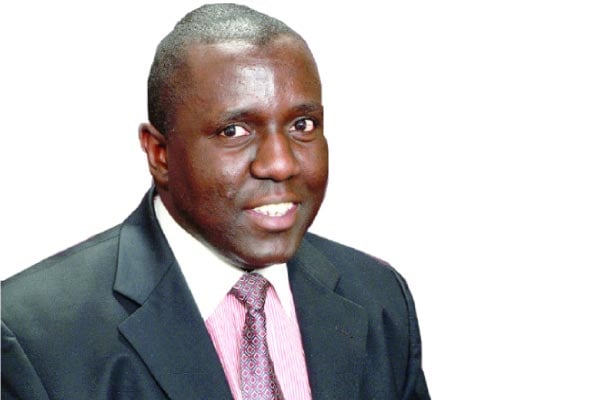Prime
NSSF announces annual returns in gloomy economic environment

Author: Karoli Ssemogerere. PHOTO/FILE
What you need to know:
- NSSF management must urgently shore up its new initiatives, voluntary contributions from the informal sector and consider indexing its returns to inflation to capture more savings.
Uganda’s National Social Security Fund (NSSF), has completed a couple of turbulent years; first the end of the Covid-19 pandemic in which the banking sector, which underwrote the financial cost of the pandemic and savers lobbied for mid-term access, resulting in amendment of the NSSF Act.
The amendment allowed savers who had saved continuously for 10 years or more and were 45 years and above to withdraw in a lumpsum an amount not exceeding 20 percent of their benefits.
While this access did not have any pronounced macro-economic effect, [the universe of paid employment in Uganda] is very small, it alleviated the financial distress of many borrowers who had lost jobs in the run-up and during the pandemic.
Most paid employment for the majority of Uganda’s small formal workforce lasts 10 years in the private sector. A few lucky ones combine careers in the private and public sector. Up to 2021, the only pre-term withdrawals allowed from NSSF were from persons leaving Uganda permanently or transiting into another provident scheme, mostly in the public sector. Post mid-term access, the burden of this withdrawal was immediately felt. NSSF returns dropped from 12.5 percent in 2021 to 9.65 percent in 2022. This was a significant underperformer of the widely available products in the financial sector.
Unit trust returns offered an average 12 percent interest in 2022, without the default risk of long-term treasuries. The 20-year Treasury Bond earned savers 17.5 percent, even though the long term non-payment risk for many government securities continues to rise.
In Ghana the fiscal cliff, caused by delayed payments of interest is part of the emergency rescue Ghana has been seeking from the IMF. Uganda received its final tranche of the catastrophic relief facility funds first disbursed in May 2021, at the onset of the Covid pandemic; in May 2023 after implementing certain governance measures, including transparency measures for politically exposed persons (PEPs).
PEP measures were immediately felt in the high-end real estate sub-sector.
NSSF also had other big stumbles in the 2022-2023 financial year. Its Solana Housing Project in Lubowa, East Africa’s largest with 2750 homes opened post pandemic last September to tepid demand, affected by a shaky economy with very low disposable income. Uganda’s economy, dependent on agriculture, tourism and light industry is dependent on the world economy. The low employment rates in the economy translate into a higher credit risk and high interest rates on commercial bank loans. Borrowers also pay punitive high costs to assure loan disbursements. While smaller projects like the 40 units in Mbuya sold out almost immediately, in Lubowa, depressed demand is holding up more fund resources.
When the Minister of Labour appointed Patrick Ayota new NSSF Managing Director, the former MD, Mr Richard Byarugaba, ran to court to seek orders to get back his former job. Governance issues have bedeviled NSSF from its establishment in 1985 as part of World Bank reforms to liberalise the retirement benefit sub-sector. No MD has left office of free will at the end of his contractual term. This has clouded the public’s perception of the Fund.
In later years, NSSF has continued to cede valuable real estate in the public debate on the state of the economy, its top governance, the board split between trade unions, employers and political appointees.
If there was anyone to speak authoritatively about the economy, outside the Ministry of Finance, it would be the Ministry of Labour relying on NSSF data and the Ministry of Industry relying on the Uganda Manufacturers Association and various trade associations in Uganda. Neither can.
NSSF management must urgently shore up its new initiatives, voluntary contributions from the informal sector and consider indexing its returns to inflation to capture more savings. The mobile money operators, including behemoths MTN and Airtel understand this, they are now paying cost of money kept on their platforms through monthly interest rates. NSSF’s return is pegged to the contributor’s prior year balance, giving it 12 months of interest free returns, or free money to finance lavish expenditures. On this the Minister of Finance should be called to order.
Karoli Ssemogerere is an Attorney-At-Law and an Advocate. [email protected]




